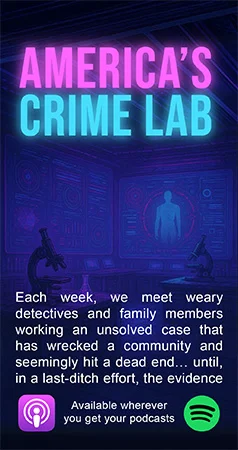- Joined
- Jul 7, 2018
- Messages
- 36,961
- Reaction score
- 243,414
The last time anyone reported seeing Robert Nicholson alive was on Dec. 10, 2018. It was 39 degrees, with a low forecast of 19. He sat at a cafeteria table inside the REM Day Center in Vineland around 1:15 p.m., waiting to board a bus for a day trip.
It was only his second day there.
But by 1:40 p.m., when the bus pulled up, no one could find Nicholson; not in the building, not in the surrounding area.
Nicholson was one of three men with disabilities who got lost late last year and later died in the cold. The other two, Juan Garcia and Joseph Brockington, were friends who lost their way whiling walking to a Wawa in Burlington County.
Between 14,000 and 16,000 people go missing for all kinds of reasons in the Garden State each year. Some are runaways, others are victims of crime or accidents, and more and more, casualties of the opioid crisis. But when it comes to adults with intellectual disabilities in full-time care facilities, balancing their autonomy with an immediate response becomes another obstacle for authorities.
In recent years, legislators unveiled a new tactic inspired by the Amberand Silver alerts. It’s called the MVP alert, but none of these tragic cases triggered it. In fact, it hasn’t been issued once since the law establishing it passed in 2016.
“There’s a fine line between independence and restraint that you don’t want to cross, "Mark Hopkins, chief with the Greater Philadelphia Search and Rescue, a volunteer organization that assists with missing persons investigations in southeast Pennsylvania and New Jersey. “Many times you have people that are mentally disabled in one way or another that are very high-functioning that lead normal day-to-day lives much like our own.”
So whose job is it to decide that?
To make sure Nicholson and the other two men, Garcia, 58, and Brockington, 56, have every right to pursue the limited independence they can manage, but won’t end up in a stressful situation that can quickly become dangerous?
3 men with intellectual disabilities went missing and died. N.J. has an alert to find them, but it’s never been used.
It was only his second day there.
But by 1:40 p.m., when the bus pulled up, no one could find Nicholson; not in the building, not in the surrounding area.
Nicholson was one of three men with disabilities who got lost late last year and later died in the cold. The other two, Juan Garcia and Joseph Brockington, were friends who lost their way whiling walking to a Wawa in Burlington County.
Between 14,000 and 16,000 people go missing for all kinds of reasons in the Garden State each year. Some are runaways, others are victims of crime or accidents, and more and more, casualties of the opioid crisis. But when it comes to adults with intellectual disabilities in full-time care facilities, balancing their autonomy with an immediate response becomes another obstacle for authorities.
In recent years, legislators unveiled a new tactic inspired by the Amberand Silver alerts. It’s called the MVP alert, but none of these tragic cases triggered it. In fact, it hasn’t been issued once since the law establishing it passed in 2016.
“There’s a fine line between independence and restraint that you don’t want to cross, "Mark Hopkins, chief with the Greater Philadelphia Search and Rescue, a volunteer organization that assists with missing persons investigations in southeast Pennsylvania and New Jersey. “Many times you have people that are mentally disabled in one way or another that are very high-functioning that lead normal day-to-day lives much like our own.”
So whose job is it to decide that?
To make sure Nicholson and the other two men, Garcia, 58, and Brockington, 56, have every right to pursue the limited independence they can manage, but won’t end up in a stressful situation that can quickly become dangerous?
3 men with intellectual disabilities went missing and died. N.J. has an alert to find them, but it’s never been used.

